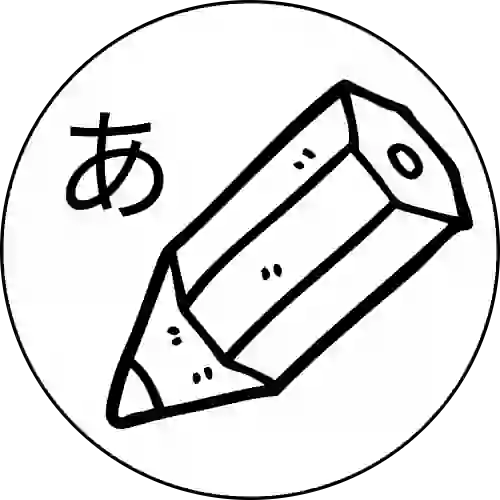1. Core Differences Between “ように” and “ために”
「ように」 and 「ために」 are two common expressions in Japanese that can both indicate purpose or reason. However, their usage contexts and tones are different.
(1) The Usage of “ように”
- Core Function: Indicates a purpose, emphasizing a hope or desire for a certain result.
- Often used with non-volitional verbs or to describe goals dependent on external conditions.
- Expresses a wish or expectation, implying an “effort direction.”
- Grammar Structure:
- Verb dictionary form / negative form + ように
- Examples:
- 忘れないように、メモしてください。
(So as not to forget, please take a note.) - 試験に合格できるように、一生懸命勉強しています。
(I am studying hard so that I can pass the exam.)
- 忘れないように、メモしてください。
- Usage Scenarios:
- Hope or wish for a certain state or result (whether it is achievable or not is uncertain).
- 雨が降らないように祈っています。
(I hope it doesn’t rain.)
- 雨が降らないように祈っています。
- Commonly used with non-volitional verbs or in negative forms.
- Example: 迷子にならないように気をつけてください。
(Please be careful not to get lost.)
- Example: 迷子にならないように気をつけてください。
- Hope or wish for a certain state or result (whether it is achievable or not is uncertain).
(2) The Usage of “ために”
- Core Function: Indicates a clear purpose, with strong volition from the subject.
- Emphasizes achieving a specific result through the subject’s action.
- Expresses determination or a plan, with a more direct tone.
- Grammar Structure:
- Verb dictionary form / noun + の + ために
- Examples:
- 健康のために、毎日運動しています。
(I exercise every day for my health.) - 日本語を話せるようになるために、日本に留学します。
(I will study abroad in Japan to be able to speak Japanese.)
- 健康のために、毎日運動しています。
- Usage Scenarios:
- Emphasizes taking specific actions to achieve a goal.
- 家を買うために、お金を貯めています。
(I am saving money to buy a house.)
- 家を買うために、お金を貯めています。
- Commonly used with volitional verbs.
- Example: 資格を取るために、学校に通っています。
(I am attending school to obtain a qualification.)
- Example: 資格を取るために、学校に通っています。
- Emphasizes taking specific actions to achieve a goal.
2. Main Differences
| Comparison Point | ように | ために |
|---|---|---|
| Core Meaning | Represents a “hope or wish”; results depend on external factors and are not guaranteed. | Represents a “clear purpose” achievable through the subject’s volitional action. |
| Verb Type | More commonly used with non-volitional or negative-form verbs. | More commonly used with volitional verbs. |
| Tone | Subjective, expressing hope or prayer, softer tone. | Objective, expressing a clear plan or purpose, more direct tone. |
| Subject Consistency | Subjects can differ. | Subjects must be the same. |
| Examples | – 風邪を引かないように、マスクをします。 | – 日本に行くために、お金を貯めています。 |
3. Application Tips
(1) Check Subject Consistency
- If the subjects are different, only “ように” can be used.
Example:- 先生が分かるように、大きな声で話してください。
(So that the teacher understands, please speak loudly.)
- 先生が分かるように、大きな声で話してください。
- If the subjects are the same, either can be used, but choose based on the verb’s volitionality:
- 試験に合格するために、勉強しています。
(I am studying to pass the exam.) - 試験に合格できるように、勉強しています。
(I am studying so that I can pass the exam, focusing on the direction of effort.)
- 試験に合格するために、勉強しています。
(2) Verb Type Matters
- Non-volitional verbs: Use “ように.”
- Example: 風が吹かないように祈っています。
(I hope the wind doesn’t blow.)
- Example: 風が吹かないように祈っています。
- Volitional verbs: Use “ために.”
- Example: 家族のために、料理を作ります。
(I cook for my family.)
- Example: 家族のために、料理を作ります。
(3) Common Exam Tips
- Check Subject Consistency:
- If the subject differs: Use “ように.”
- If the subject is the same: First check the verb’s volitionality, then choose “ために” or “ように.”
- Check Verb Type:
- Non-volitional verbs: Prefer “ように.”
- Volitional verbs: Prefer “ために.”
- Tone Emphasis:
- If emphasizing achieving a result and a more direct tone: Use “ために.”
- If emphasizing effort direction or prayer: Use “ように.”
4. Common JLPT Exam Questions (N3/N2/N1)
Example 1 (N3)
【Question】Which of the following fits in ( )?
毎日練習して、試験に合格( )。
- するために
- できるように
Answer: 2. できるように
- Reason: This emphasizes “the effort direction to be able to pass,” which fits the usage of “ように.”
Example 2 (N2)
【Question】Fill in the blank in the following sentence:
子どもが早く元気になる( )、一生懸命看病しました。
- ために
- ように
Answer: 1. ために
- Reason: The subject is the same (“the parent”), and it emphasizes the concrete action of “taking care” to achieve the purpose.
Example 3 (N1)
【Question】Choose the correct sentence:
- 病気を治すように、薬を飲んでいます。
- 病気を治すために、薬を飲んでいます。
Answer: 2. 病気を治すために、薬を飲んでいます。
- Reason: The verb “治す” is volitional, making “ために” more appropriate.
5. Sentence Patterns Related to “ように” and “ために”
Related Patterns for “ように”
- ようにしてください: Used for polite requests.
Example: 静かにするようにしてください。
(Please try to keep quiet.) - ようになる: Indicates a change in state.
Example: 日本語が話せるようになりました。
(I’ve become able to speak Japanese.)
Related Patterns for “ために”
- ための: Modifies a noun to indicate “for the purpose of.”
Example: 健康のための運動です。
(Exercise for health.) - ためにする: Indicates taking action for something.
Example: 国の将来のために努力します。
(I will work hard for the future of the country.)
By mastering these sentence patterns and focusing on subject consistency, verb type, and tone, you can quickly determine the correct usage of “ように” and “ために.”
